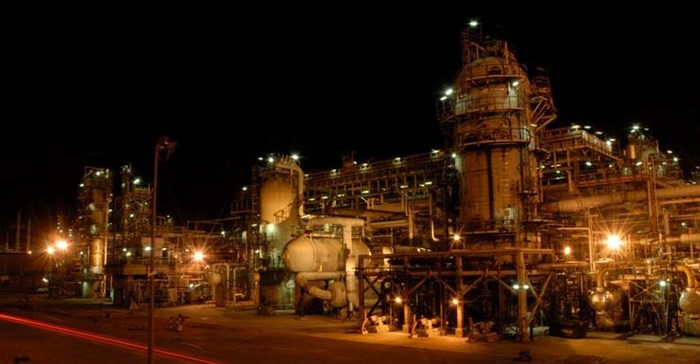
Shutterstock
The discovery, comes against the backdrop of rising fuel prices and an electricity utility in crisis, has raised hopes that it may be a game changer. The Conversation Africa’s Nontobeko Mtshali spoke to Robert Scholes and Rod Crompton about the significance of the find.
Is this an energy “game-changer”?
It’s not yet clear how big the find is. In a press release, Total said it “could be around one billion barrels of global resources, gas and condensate light oil”. To put that in perspective, South Africa’s total refinery capacity is 700 000 barrels of oil per day.
The gas is present over a relatively large vertical distance (57 metres), but it’s not clear how extensive the gas-rich area is. We simply won’t know until more holes are drilled, and three-dimensional seismic surveys are completed.
Gas can be converted into liquid fuels. There are only a few gas-to-liquids refineries around the world. PetroSA, South Africa’s national oil company, built one in Mossel Bay in 1989, which it still operates. It is the smallest refinery in the country.
The Brulpadda find contains condensates – a kind of light crude oil – which only PetroSA’s Mossel Bay refinery can process.
This means the biggest benefit will probably be to that refinery. It has a capacity of about 40 000 barrels a day, and the Brulpadda find – given its proximity – could extend its life substantially.
How does this change the national energy strategy?
The government’s energy policy and its Gas Utilisation Master Plan agree that South Africa could usefully increase the amount of natural gas in the mix. It wants to diversify away from coal and imported crude oil.
Other reasons for increasing the use of gas are a bit counter-intuitive if your perception is that South Africa should be moving away from fossil fuels like gas and oil and into renewable energy sources, to reduce climate change and save money.
The problem is that solar energy and wind energy – the main forms of renewable energy available to South Africa – are both intermittent: the energy they supply fluctuates with the sunshine and the weather.
Currently the country fills the gaps between the variable supply and the consumer demand, which also fluctuates through the day and year, by turning on very expensive diesel-powered electricity generators. Switching them to natural gas could do this job more cheaply, more efficiently and with lower emissions, including of greenhouse gases.
So increasing the gas used increases the fraction of renewables which can be included in South Africa’s electricity mix, while still meeting a given electricity security and emissions target.
Will this gas be used in South Africa, or exported into the global market?
It’s too early for South Africa to be counting its chickens. It takes years to develop a gas-field to the point where it is producing gas. Many things can change in that period. The Brulpadda find is at great depth, both below the sea surface and below the sea floor. It will be challenging to develop in an area notorious for high winds and heavy seas. But the likelihood is that a modest-sized gas find on the South Coast would mostly be used in South Africa.
Compressing natural gas for long-distance export by sea is an expensive business. It needs major infrastructure, which South Africa currently doesn’t have. The country also doesn’t yet have a well-developed infrastructure for using gas, so the supply may initially be more than South Africa can consume.
But since there’s a captive market nearby, Total – an international, for profit company that will charge a market-related price for its gas – will almost certainly first try to sell it locally, rather than incur the cost of transporting it elsewhere. The most likely first candidates will be the PetroSA gas-to-liquids plant and the Gourikwa (diesel) power station near Mossel Bay.
The Mineral and Petroleum Resources Development Act amendment, soon to be sent to the South African parliament after years of wrangling, is designed to protect national interests in this regard.
This article is republished from The Conversation under a Creative Commons license. Read the original article.





































